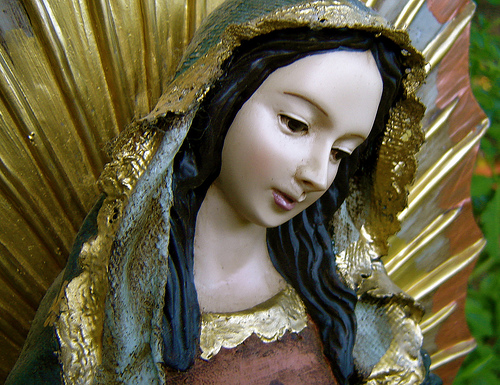
One of my seminary classmates ran into a problem in the process of getting ordained to the ministry. His scholarly approach to the Bible did not sit well with the more conservative members of his ordination committee. One of our professors agreed to coach him on answering their questions with integrity and truth, but in a way that might satisfy those who took a more literalist view of the Bible.
He made it through the committee with a tie vote; therefore, the larger governing body, a meeting of about 400 people, would have to examine him and decide whether or not to ordain him.
His examination began well. With poise and confidence, he articulated his answers in such a way that respected the authority of Scripture while embracing the tools of academic biblical criticism. Then, it happened. An elderly man came to the microphone and asked, “Young man, do you believe in the virgin birth?”
In the brief pause between the asking of the question and the breath he took to answer, perhaps two seconds, I could see in his frozen expression all the phrases, all the complex theological doctrine pass before his eyes: historicity versus narrative theological witness; the line between faith and superstition; modern magical thinking versus ancient theological witness. He turned slightly and made eye contact with his professor-coach who sat on the front pew.
She was frantically nodding her head and mouthing the words, “YES! YES! JUST SAY YES!”
In my posts this week, I will do my best to tread through the minefield between the academic and the pastoral approach to the story of the virgin birth of Jesus in the Gospel According to Luke.
Before I don my steel-plated boots, I’ll stop here and turn it over to you, dear readers. How important to you is the doctrine of the virgin birth? Why does it matter, or why not?

I use to think about the word “virgin” with only one definition. Now I think about the word “virgin” in a different light. More times than not stories in the bible are not always taken literally. Due to the number of different writers and hears of the stories its hard to read any story in the bible as literal, in my opinion. However, that doesn’t mean that there is not Truth behind every story that tells us about God, ourselves, and the world. So, why should the word “virgin” be taken only in its literal definition that society hangs on it, one who has not engaged in sex. I think God chose Mary because she was a “virgin” with the word “virgin” meaning pure of heart. Mary was young, innocent, not (in my opinion) corrupted by the evils of society, she was pure of heart, “she had found favor with God” (Lk 1:30). She had an innate sense that what God was calling her to do was so important that she could not so No. She said, ‘here I am, the servant of the Lord; let it be with me according to your word” (Lk 1: 38). The “virgin” birth for me is important in the sense that God chose a young woman whose heart was pure, who was innocent (child-like innocence), and whom would accept God’s calling with little to no hesitation. It is also important because it confirms for me that Christ is fully human as well as fully divine. Mary may well have been a “virgin” in the regular sense of the word, many people today are “virgins” and still have babies, but that does not make their baby, any less, their child just because they didn’t go about the birthing process in the “normal” way. Joseph is not any less the father of Jesus than two parents who adopt a baby because they can’t have one of their own.
Thanks for your thoughtful comments, Jen.